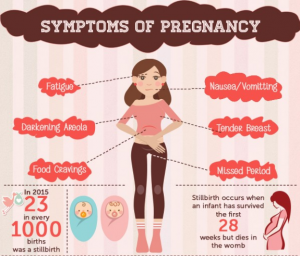PAPP-A (Pregnancy Associated Plasma Protein A) Test

Pregnancy-associated plasma Protein A, commonly known as PAPPA, is a protein produced by the placenta during pregnancy. It is a crucial biomarker used to assess foetal well-being and screen for chromosomal abnormalities in the developing foetus. The PAPP-A test is a simple blood test done during pregnancy to measure the level of this important protein.
Keep reading to learn more about this blood test for pregnancy, why it matters, and how it’s done.
What is the PAPP-A Test?
PAPP-A stands for Pregnancy-Associated Associated Plasma Protein A. It is a hormone produced by the placenta during pregnancy. The placenta connects the mother and the developing foetus. It provides nutrients and oxygen to the growing baby and removes waste products.
PAPP-A is needed for the implantation process and to maintain a healthy placenta (afterbirth). It plays a pivotal role in regulating the growth and development of the placenta and the foetus. That’s why monitoring PAPP-A levels is important, as it helps assess placental and foetal well-being.
The PAPP-A test is a blood test for pregnancy, usually done between 11-14 weeks of pregnancy. It measures two hormones – Pregnancy-associated Plasma Protein A (PAPP-A) and Human Chorionic Gonadotropin (HCG).
This prenatal test helps determine if there is a heightened risk of genetic abnormalities in the foetus, like Down’s syndrome, Edwards syndrome, or Patau syndrome. It is recommended as a precautionary screening.
The PAPP-A test is a maternal blood test part of the combined first-trimester screening. Along with other tests, it can help diagnose potential chromosomal disorders or genetic defects in the developing foetus.
The main aim of the PAPP-A test for pregnancy is the early detection of risks so that additional diagnostic testing and appropriate interventions can be considered if required.
How and when PAPP-A test is done?
The PAPP-A blood test for pregnancy is an important prenatal screening conducted between 11-14 weeks toward the end of the first trimester. It involves two key components – a blood test and an ultrasound scan to visualise the developing foetus.
The ultrasound allows assessment of the nuchal translucency – the fluid accumulation under the skin behind the foetal neck. It also examines the nasal bone development to screen for abnormalities. This imaging is completely non-invasive and safe for the foetus.
Concurrently, the mother’s blood sample is used to ascertain the levels of:
- Protein A
- HCG
The ultrasound and blood work must be done on the same day to correlate foetal growth markers and maternal biochemical levels. The test pregnancy results factor in details like maternal age, stage of pregnancy, and past obstetric history to evaluate the risk of genetic defects. Thus, the PAPP-A test in pregnancy allows early and crucial screening of chromosomal abnormalities.
What does the PAPP-A test result denote?
The key measures in the PAPP-A test are hCG and PAPP-A levels, expressed through two values – MoM and absolute concentration.
MoM stands for Multiple of the Median. It represents how a test result compares to the average of all tests. A MoM of 1.00 means the result is average. Above 1.00 is higher than average, while below 1.00 is lower than average.
For PAPP-A, the normal range is considered 0.5 MoM or higher. Levels below 0.5 MoM are classified as low. Studies show that women with normal PAPP-A levels generally have fewer pregnancy complications than those with low PAPP-A levels.
What does a low pregnancy-associated plasma protein A mean?
Low levels of PAPP-A or protein in pregnancy mean that the placenta is not working as well as it should. According to a research, PAPP-A levels below 0.5 MoM in pregnant women may be associated with:
- Miscarriage or stillbirth in the second half of the pregnancy.
- An increased chance of preterm birth.
- Baby born with a lower weight.
- Foetal growth restriction.
- Increased chances of developing preeclampsia. It is a serious condition wherein you develop high blood pressure and protein in your urine during pregnancy.
When pregnant women have low PAPP-A test results, doctors might suggest a small dose of aspirin to help prevent potential problems.
Also, women must get periodic prenatal check-ups to monitor blood pressure and protein levels and ultrasound to assess foetal development and amniotic fluid volume. Furthermore, if you smoke, it is advisable to quit smoking, as smoking increases the risk of placental dysfunction.
The prognosis can be avoided in most cases by diagnosing issues early, taking preventive steps, and staying on top of prenatal care.
Measuring the levels of plasma protein A in pregnancy, often as part of the first-trimester screening test, allows healthcare providers to assess the health of the pregnancy and identify potential complications. However, remember that the PAPP-A test is a screening test, not a diagnostic test.














